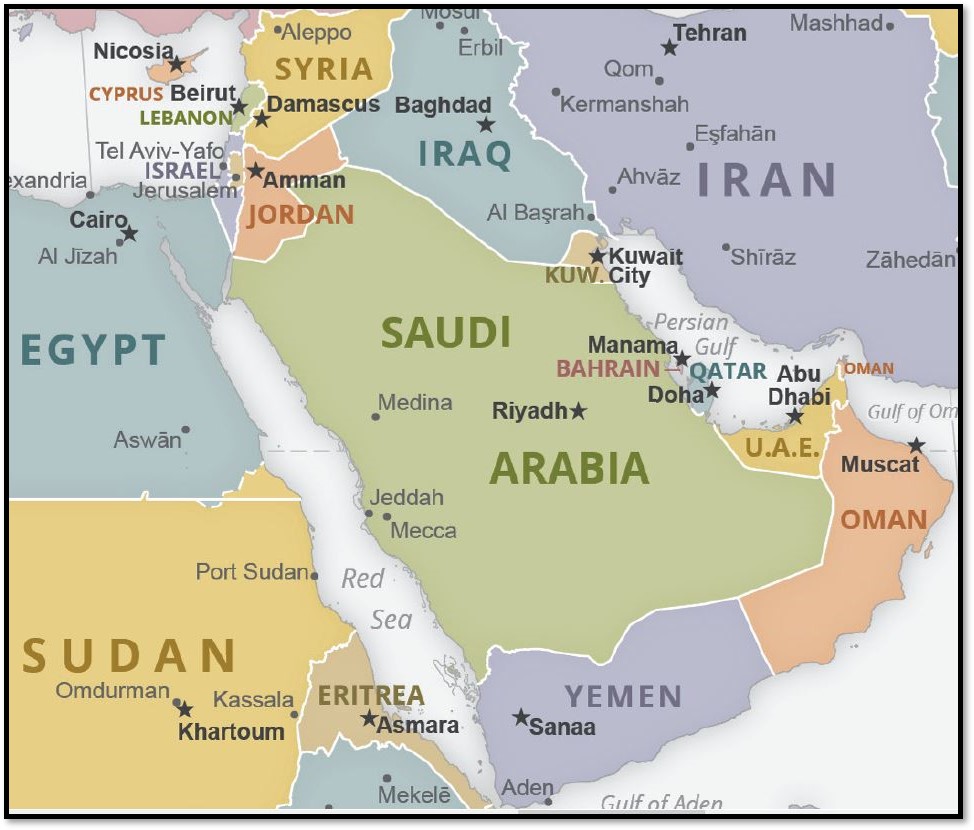Iran: Reaction to Snapback Sanctions
On September 20, Iran condemned the U.S. decision to reimpose U.N. sanctions that had been lifted as part of the 2015 nuclear deal. The United States had no legal standing to invoke sanctions since it had withdrawn from the agreement in May 2018, officials said. Foreign Minister Mohammad Javad Zarif said that the United States would effectively be punishing countries that honored their commitments to the Joint Comprehensive Plan of Action (JCPOA) and U.N. Resolution 2231, a U.S. resolution passed unanimously by the Security Council.
US: Snapback Sanctions Go Into Force
On September 19, the Trump administration formally reimposed U.N. sanctions on Iran that had been lifted as part of the 2015 nuclear deal. Secretary of State Mike Pompeo declared that the United States unilaterally would reenact five sets of U.N. sanctions from 2006 through 2010, despite opposition from the other five major powers that brokered the nuclear deal and most of the 15-member Security Council.
Iranian Media on Ginsburg's Death
On September 20, Sazandegi, a centrist daily, published a cover photo of late Supreme Court Justice Ruth Bader Ginsburg. “Death of U.S. Judge,” read the headline marking her passing on September 18 of pancreatic cancer. The newspaper also speculated on the political repercussions. “With the death of Supreme Court Justice Ruth Bader Ginsburg, Democrats fear a change in the power balance of the Supreme Court,” Sazandegi reported.
Trump on Future Deal with Iran
On September 15, President Donald Trump said that he could make a “good deal” with Iran if reelected in November. “I would say, right after the election — within a period of a week, maybe a month … you’ll have Iran coming back and saying, ‘Let’s get this whole thing worked out,’” he told reporters in the Oval Office during a meeting with Emirati Foreign Minister Bin Zayed Al Nahyan.
Iran on New Middle East Peace Deals
Iran vigorously condemned the new U.S.-brokered agreements—known as the Abraham Accords—between Israel and the United Arab Emirates and Bahrain signed at the White House on September 15, 2020. The new Middle East peace deals, the first in more than a quarter century, dramatically changed the core alliances in the world’s most volatile region and increased pressure on Iran. They created a new Arab-Israeli bloc, backed by the United States, aligned against the Islamic Republic, which has the largest military in the Middle East.
News Digest: Week of September 14
September 14
Health: Iran recorded the highest daily rise in COVID-19 fatalities since mid-August. More than 150 patients died in a single day which put overall official death toll at 23,313.
September 15
Health: Iran recorded 407,353 cases and 23,632 deaths from COVID-19.
Operation Sentinel Protects Gulf Shipping
In November 2019, the United States and six other countries—Australia, Bahrain, Britain, Qatar, Saudi Arabia and the United Arab Emirates—launched Operation Sentinel in the Persian Gulf. Albania and Lithuania joined later, in November 2019 and in March 2020, respectively. Why?
In Washington, Iraqi Officials Discuss Iran
On August 19, Iraqi Prime Minister Mustafa al Kadhimi arrived in Washington to meet with President Donald Trump and continue a U.S.-Iraq strategic dialogue that kicked off in June. The talks between senior officials covered security and counterterrorism, economics and energy, political issues, and cultural relations. In various forums, Iraqi leaders underscored the importance of having working relationships with Iran and the United States. But they also said that they wanted to keep the U.S.-Iran rivalry out of Iraq's domestic affairs.
IAEA Presses Iran for Access to Nuclear Sites
On August 24, Rafael Grossi, the U.N. nuclear watchdog’s chief, arrived in Tehran to press for access to two suspected former nuclear sites. The head of the International Atomic Energy Agency (IAEA) met with top officials, including President Hassan Rouhani, Foreign Minister Mohammad Javad Zarif and Ali Akbar Salehi, the head of Iran’s Atomic Energy Organization (IAEO). “Our conversation today was very constructive.

